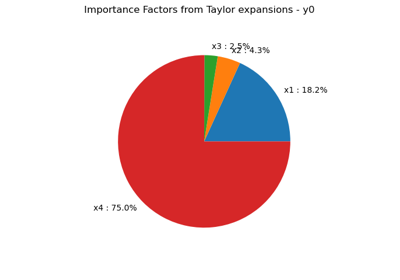BlendedStep¶
- class BlendedStep(*args)¶
Blended step.
- Parameters:
- epsilonsequence of float
Finite difference step factors for each dimension.
- etapositive float or sequence of positive float with the same dimension as epsilon, optional
Finite difference step offsets for each dimension.
Methods
Accessor to the object's name.
Get the finite difference steps.
getEta()Get the finite difference step offsets.
getName()Accessor to the object's name.
hasName()Test if the object is named.
setEpsilon(epsilon)Set the finite difference steps.
setEta(eta)Set the finite difference step offsets.
setName(name)Accessor to the object's name.
See also
Notes
BlendedStep defines a list of finite difference steps equal to: epsilon (|x| + eta).
Examples
>>> import openturns as ot >>> epsilon = [1e-4, 2e-4] >>> x = [2.0]*2 >>> steps = ot.BlendedStep(epsilon) >>> print(steps(x)) [0.0003,0.0006] >>> steps = ot.BlendedStep(epsilon, 0.0) >>> print(steps(x)) [0.0002,0.0004] >>> steps = ot.BlendedStep(epsilon, [1.0, 2.0]) >>> print(steps(x)) [0.0003,0.0008] >>> steps = ot.BlendedStep(epsilon, 2.0) >>> print(steps(x)) [0.0004,0.0008]
- __init__(*args)¶
- getClassName()¶
Accessor to the object’s name.
- Returns:
- class_namestr
The object class name (object.__class__.__name__).
- getEpsilon()¶
Get the finite difference steps.
- Returns:
- epsilon
Point If
ConstantStep: Finite difference steps for each dimension.If
BlendedStep: Finite difference step factors for each dimension.
- epsilon
- getEta()¶
Get the finite difference step offsets.
- Returns:
- eta
Point Finite difference step offsets for each dimension.
- eta
- getName()¶
Accessor to the object’s name.
- Returns:
- namestr
The name of the object.
- hasName()¶
Test if the object is named.
- Returns:
- hasNamebool
True if the name is not empty.
- setEpsilon(epsilon)¶
Set the finite difference steps.
- Parameters:
- epsilonsequence of float
If
ConstantStep: Finite difference steps for each dimension.If
BlendedStep: Finite difference step factors for each dimension.
- setEta(eta)¶
Set the finite difference step offsets.
- Parameters:
- etasequence of positive float
Finite difference step offsets for each dimension.
- setName(name)¶
Accessor to the object’s name.
- Parameters:
- namestr
The name of the object.
 OpenTURNS
OpenTURNS

